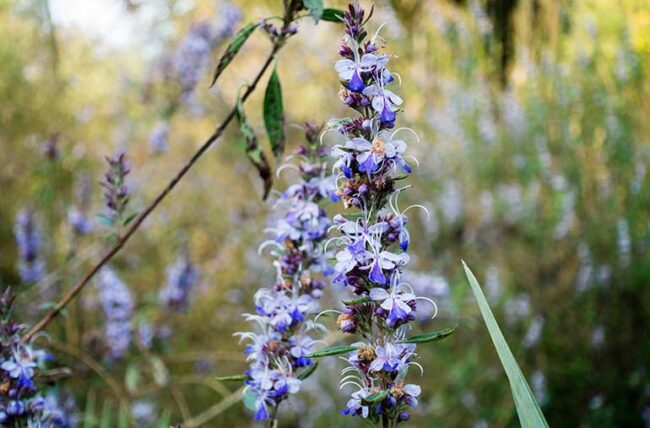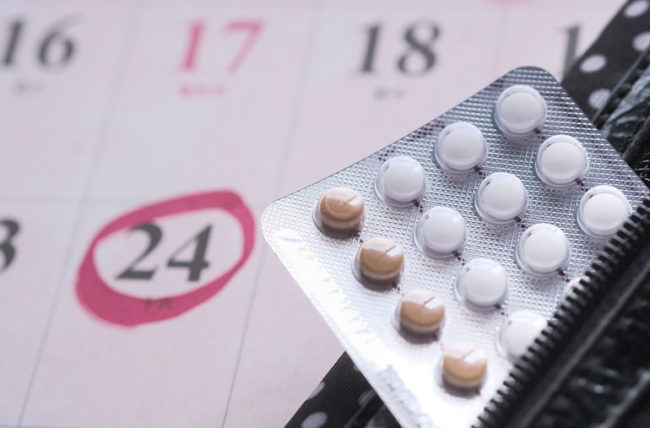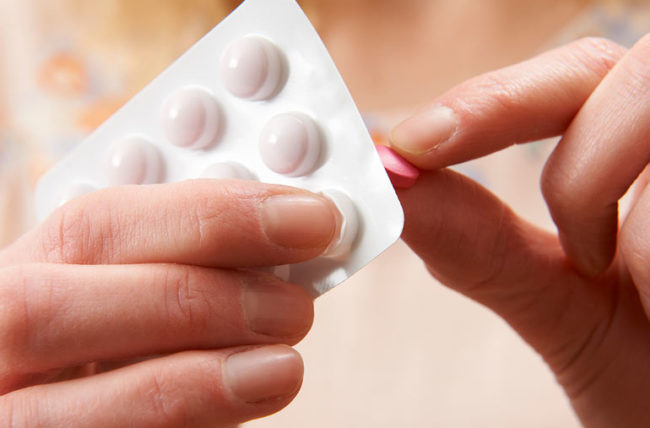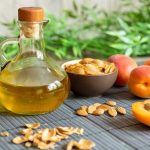It’s not fun to ride a rollercoaster of hormones. You can feel irritable and unmotivated whether or not you are in the middle of your period. For some women, hormonal fluctuations can lead to problems such as painful period or even infertility.
Chasteberry can be a natural remedy. It has been used for thousands of year to treat symptoms associated with hormonal imbalances. Sobia Khan, MD a functional medicine specialist, explains what chasteberry can do and how to use it.
What is chasteberry?
The fruit of the chaste, which is indigenous to Asia and the Mediterranean region, is called the chasteberry. Its scientific title is Vitex agnuscastus.
In Germany, healthcare professionals regularly prescribe it to treat menstrual irregularities, period-related pain, and premenstrual Syndrome (PMS). Chasteberry can be purchased over-the-counter in the U.S.
- Capsules.
- Extracts.
- Gummies.
- Tea.
Chasteberry benefits
Chasteberry reduces inflammation, and balances hormones. Dr. Khan says that it helps conditions where estrogen and progesterone are fluctuating.
Although it’s not known exactly how it works yet, studies have shown it to be medicinal.
1. Reduce PMS symptoms
Feeling less than your best in the week leading up to your period? In one study, taking 20 milligrams of chasteberry daily for three months reduced PMS. Chasteberry can help with:
- Breast pain is a common complaint.
- Headaches.
- Changes in mood, such as irritability or sadness.
Dr. Khan says that chasteberry is especially useful for mood swings. PMS can make some people feel depressed or irritable. But you cannot take antidepressants just for a couple of days and expect them to work. Antidepressants must build up in your body. You can use chasteberry whenever you need it. It is an anti-inflammatory which helps to calm down hormones, and lessen PMS related mood changes.
2. May help improve fertility
Infertility is a complex condition. The luteal stage of the cycle is one of them. This phase occurs between ovulation, when your ovaries release a fertilized egg, and the start of your period.
Progesterone levels increase during the luteal period. The lining of the uterus thickens in preparation for pregnancy. Your uterus cannot support pregnancy if you do not produce enough progesterone.
Menstrual irregularities can be caused by a variety of conditions, including:
- Endometriosis.
- PCOS (Polycystic Ovary Syndrome).
- Thyroid Disorders.
The research on chasteberry and infertility is promising, but it’s still in the early stages. Researchers found it:
- Increases production of progesterone: Participants of a small study were given a 20 milligram capsule each day for three months. It helped to normalize the luteal phase and increased progesterone.
- Increases the likelihood of pregnancy: According to research, supplements that contain chasteberry can increase the chances of pregnancy for people who have luteal phase issues. After three months, one study found that women were two times more likely to become pregnant. After five months, the pregnancy rate was 33% greater.
3. Relieves menopause symptoms
When you’ve gone 12 months without a period, you’ve reached the menopause. Even though you might think that the rollercoaster of hormones is over, there may be one more loop. Even though hormone levels are low during menopause, symptoms such as hot flashes or depression can still occur.
According to research, chasteberry may help improve menopausal-related symptoms. It might do this by decreasing the frequency of night sweats or hot flashes . It may be that chasteberry is rich in phytoestrogens which are natural substances that mimic the hormone estrogen.
Chasteberry side-effects and risks
Some people may experience mild side effects from chasteberry. Dr. Khan warns that if you take too much or not enough, you may experience nausea and stomach problems. It can cause headaches.
Always consult your healthcare provider before using chasteberry as it may also come with additional risks.
- Drug Interactions: Chasteberry may negatively interact with certain prescription medications.
- Cancers sensitive to hormones: Chasteberry can worsen certain diseases such as breast, uterine, and ovarian carcinomas. If you suffer from any of the conditions listed above or have another condition which is negatively affected by hormonal changes, avoid chasteberry.
- Breastfeeding and pregnancy: Although some people claim that chasteberry increases milk production, there is not enough evidence for this claim. If you are pregnant, breast-feeding or chest-feeding your baby then don’t use chasteberry.
Use chasteberry supplements
Chasteberry is a proven remedy for hormonal imbalances. It’s a natural remedy that can help relieve uncomfortable symptoms.
Always consult your healthcare provider prior to taking any new supplements. Before you start taking chasteberry supplements in particular, there are some things that you should be aware of.
What is the best supplement for you?
Dr. Khan says that unlike other herbal remedies it is relatively easy to locate a good formulation in the U.S. Do some research and find a brand that has been tested by an independent third-party laboratory if you want to give it a try.
Remember that different formulations are used to treat different conditions. You can ask your doctor which formulation will best suit your needs.
What is the correct dosage of chasteberry?
It’s important that you take the correct amount of chasteberry, and this often means starting at the lowest dose.
Dr. Khan says that people tend to follow the instructions on the bottle. However, that dosage may not be the best one for them. This is the maximum amount that you can consume without being toxic. Start with the smallest dose and work your way up.
You should wait two days before you increase your dosage or add a new supplement into your routine. This will give you time to see if there are any side effects or improvements.
Take chasteberry when needed
It is not necessary to take chasteberry daily to reap its benefits. “For example, during PMS you can take it up to three times per day according to dosage”, Dr. Khan explains. As your period ends, you can take it two times, then once, and stop if you are feeling fine.






















